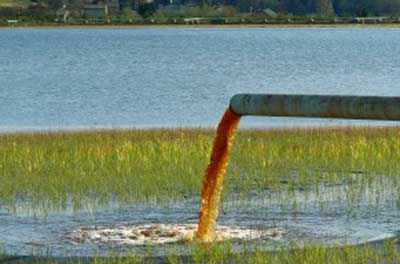(单词翻译:单击)
情景对话
Christophe: OK, Aiste, we're going to talk about environmental issues in Europe. So, does Lithuania have environmental issues?
克里斯托弗:好,爱斯蒂,我们来谈谈欧洲的环境问题。立陶宛有环境问题吗?
Aiste: Oh, actually were are facing kind of a big problem. The Baltic Sea that's besides Lithuania. You know three Baltic countries: Estonia, Latvia and Lithuania, together with Scandinavian and Denmark are close to the Baltic Sea that's very isolated and almost has no contact with the ocean and because of that it functions almost like a lake so it means the oxygen can't really get into it and there are a lot of algae growing and the eutrophication and together pollution as well as nutrients increase due to the factories that are around the place where people live are causing a lot of problems in Baltic Sea.
爱斯蒂:哦,实际上我们面临着严重的问题。立陶宛位于波罗的海沿岸。波罗的海三国为爱沙尼亚、拉脱维亚和立陶宛,另外斯堪的纳维亚和丹麦离波罗的海很近,波罗的海非常孤立,几乎与海洋没有任何接触,正因如此,波罗的海其实更像是一个湖泊,这表明氧气无法进入波罗的海,而且海藻大量生长,出现富营养化现象,另外由于人们生活区域的工厂造成了很多污染,这些都给波罗地海造成了很多问题。
Christophe: Eutrophication? What does that mean?
克里斯托弗:富营养化?那是什么意思?
Aiste: Eutrophication is actually a process when due to the increase nitrates and other organic materials, a lot of algae starts growing in the sea, and therefore it deprives the sea of oxygen and once it deprives the seas of oxygen, no more fish can live in the sea and they start dying out. Therefore the sea smells with kind of sulphur — strange smell — and it's a huge problem because the biodiversity and the fish and the in the sea decreases.
爱斯蒂:富营养化其实就是硝酸盐和其它有机材料增加的过程,波罗的海有大量的海藻,导致波罗地海无法吸收氧气,一旦氧气无法进入,鱼类就无法在波罗的海生活下去,濒临灭绝状态。所以波罗的海闻上去有种硫磺的味道,一种很奇怪的味道,因为鱼类数量开始减少,这就给生物多样化造成了严重问题。
Christophe: Wow! That sounds horrible.
克里斯托弗:哇!听起来很可怕。
Aiste: What about Belgium? Do you have any problems in Belgium do the environment?
爱斯蒂:比利时呢?比利时有环境问题吗?
Christophe: Well, first of all we have a lot of people living in a very small country. I think we have around four hundred people each square kilometer, so it means that there are too many people in my country. Everything is full of houses, so there's almost no forest any more. There's a real huge problem of deforestation. The second problem is that we have a lot of rivers that are polluted. We have many factories and they're polluting our rivers because we have a lot rivers in Belgium. Remember, it is raining there a lot of times and there just dumping all their stuff in the river so this causes rivers that have no fish anymore, or where children cannot swim in anymore, so that's a very, very huge problem in Belgium and we're trying to solve that now.
克里斯托弗:首先,我们国家非常小,可是人口众多。我认为我们国家的人口密度大约是每平方千米400人,这说明我们国家的人口太多了。到处都是建筑,几乎没有森林地区。滥伐森林现象严重。第二个问题是我们有很多河流被污染。有太多的工厂污染河流,因为比利时有很多河流。还记得吗,比利时雨水很多,所有污染物都会进入河流,这样就导致河里的鱼类几乎灭绝,而且也没有孩子们可以游泳的地方了,这是比利时一个非常非常严重的问题,目前我们正在努力解决这个问题。

译文属可可原创,仅供学习交流使用,未经许可请勿转载
重点讲解
重点讲解:
1. together with 连同…一起;还有;加之;
例句:He sent her some roses, together with a nice letter.
他送她几枝玫瑰,随同附上一封动人的信。
2. due to 由于;因为;
例句:The flight was delayed due to bad weather.
由于天气不好,飞行推迟了。
3. deprive of 剥夺;使丧失;使不能享有;
例句:These trees deprive my house of light.
这些树遮住了我房屋的光线。
4. be full of 有大量…的;满是…的;
例句:My stationery cupboard is full of paper.
我的文具柜塞满了纸。
5. die out 逐渐消亡;灭绝;绝种;
例句:No one have come up with a convincing explanation of why dinosaur die out.
尚未有人能对恐龙的灭绝作出一个令人信服的解释。


